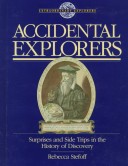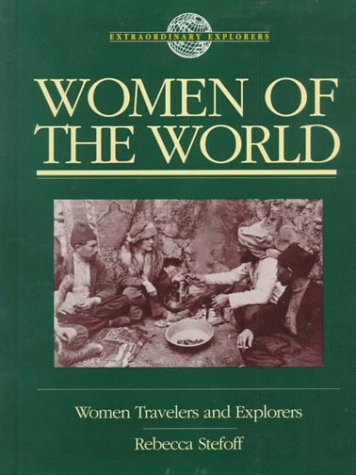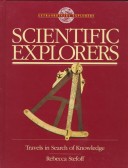Extraordinary Explorers S.
3 total works
"Extraordinary Explorers" is a three-volume set that documents the lives and deeds of well-known explorers as well as some of the travellers and explorers who do not appear in traditional history books. Each book focuses on one extraordinary aspect of exploration. "Accidental Explorers" describes explorers who set out to look for one thing but found something else entirely, or who made marvellous discoveries by accident or sheer luck. Jebediah Smith, who pioneered the overland crossing to California, John Cabot's voyage to Newfoundland, Jacques Cartier's voyages to Newfoundland and the Gulf of St Lawrence, Frobisher's discovery of Frobisher Bay, and Henry Morton Stanley, the newspaperman who explored central Africa, are just a few examples.
"Extraordinary Explorers" is a new three-volume series that documents the lives and deeds of well-known explorers as well as some of the travellers and explorers who do not appear in traditional history books. Each book focuses on one extraordinary aspect of exploration. This book profiles courageous women such as Sacajawea, a Native American who guided the Lewis and Clark expedition; Mary Kingsley, an Englishwoman notable for her enlightened, modern attitude toward the African cultures she encountered in her travels alone in West Africa; Alexandra David-Neel, a Frenchwoman who crossed the Himalayas and travelled disguised as a beggar to Lahsa, where foreigners were outlawed; Louise Arner Boyd, an American who led seven expeditions into Greenland and the Arctic; and Susanna Moodie's immigration and life in early 19th-century Canada.
"Extraordinary Explorers" is a three-volume series that documents the lives and deeds of well-known explorers as well as some of the travellers and explorers who do not appear in traditional history books. Each book focuses on one extraordinary aspect of exploration. This book chronicles the history of scientific exploration, beginning with Captain Cook's astronomical observations in the South Pacific in the 18th century, and describing various other tropical, polar, ocean and space explorations. Subjects include pioneer naturalist Alexander von Humboldt, who ventured into the Amazon; the US Exploring Expedition that circled the globe in the 1830s; the mapping expeditions and geological surveys of the American West by Fremont and others; and the researches of Charles Darwin and Alfred Wallace, which led to the theory of evolution.


